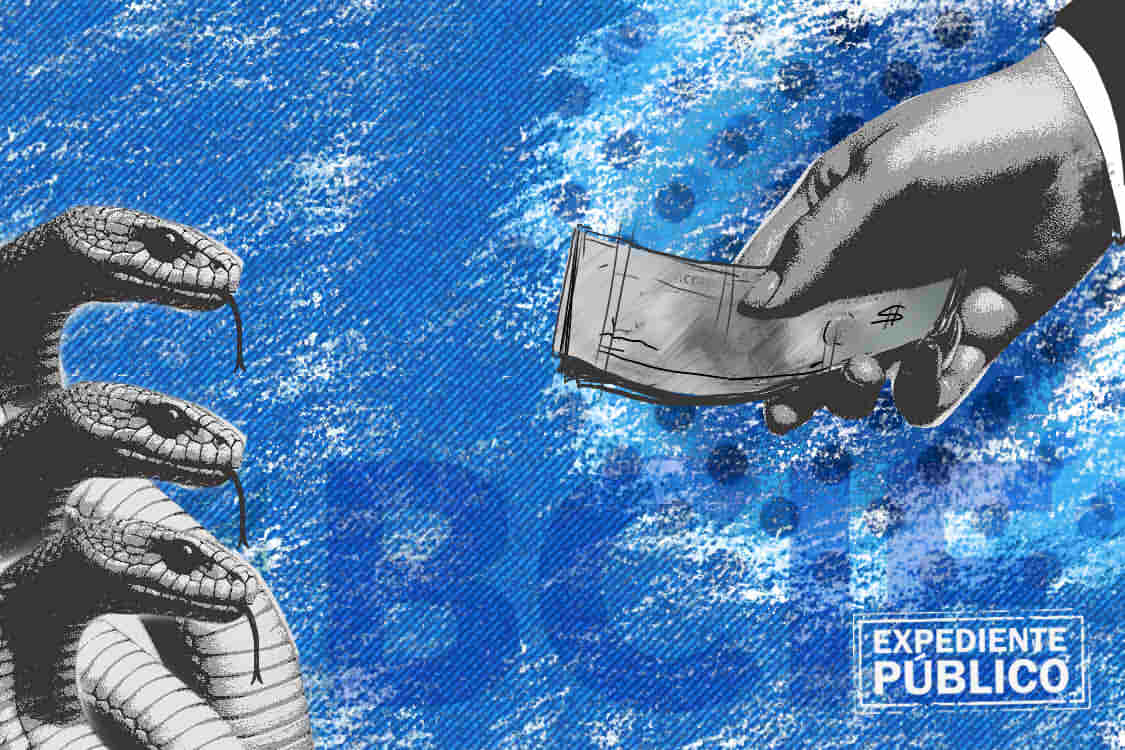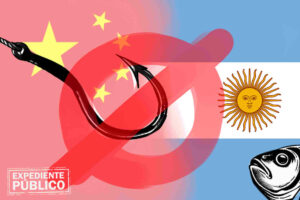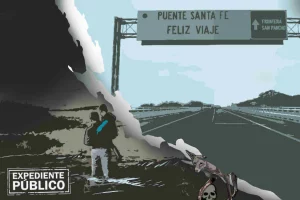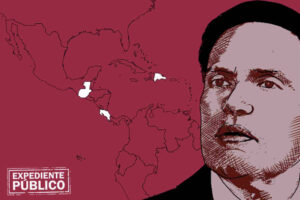* Former president of CABEI, Dante Mossi sued the institution before the Central American Court of Justice for 6 thousand dollars that were deducted from his last payment.
** He considers that Gisela Sánchez’s presidency of CABEI shows setbacks in terms of transparency, which is why he proposes himself as auditor.
Yarely Madrid / Expediente Abierto
“The Washington Post journalist asks me, ‘Dante, is your mind at peace that you did not contribute to the deaths of Nicaraguans,’ ‘very peaceful,’ the former president of the Central American Bank for Economic Integration (CABEI), Dante Mossi, told Expediente Público.
After a report by the Washington Post with the collaboration of Expediente Público revealed his alleged involvement in financial support to the Nicaraguan regime during 2018, Dante Mossi agreed to give an interview to this media outlet in Tegucigalpa.
Subscribe to the Expediente Público newsletter and receive more information
The interview took place days before CABEI’s civil lawsuit against Mossi “for breach of fiduciary duty, market manipulation, unlawful interference and breach of contract and violation of the RICO Act (Racketeer Influenced and Corrupt Organizations Act).”
“I arrived in December 2018, the hard crisis in Nicaragua had already passed,” Mossi said.
Mossi presided over CABEI in 2018 and his management earned him the title of “friend” and “banker” of Daniel Ortega’s dictatorship in Nicaragua.
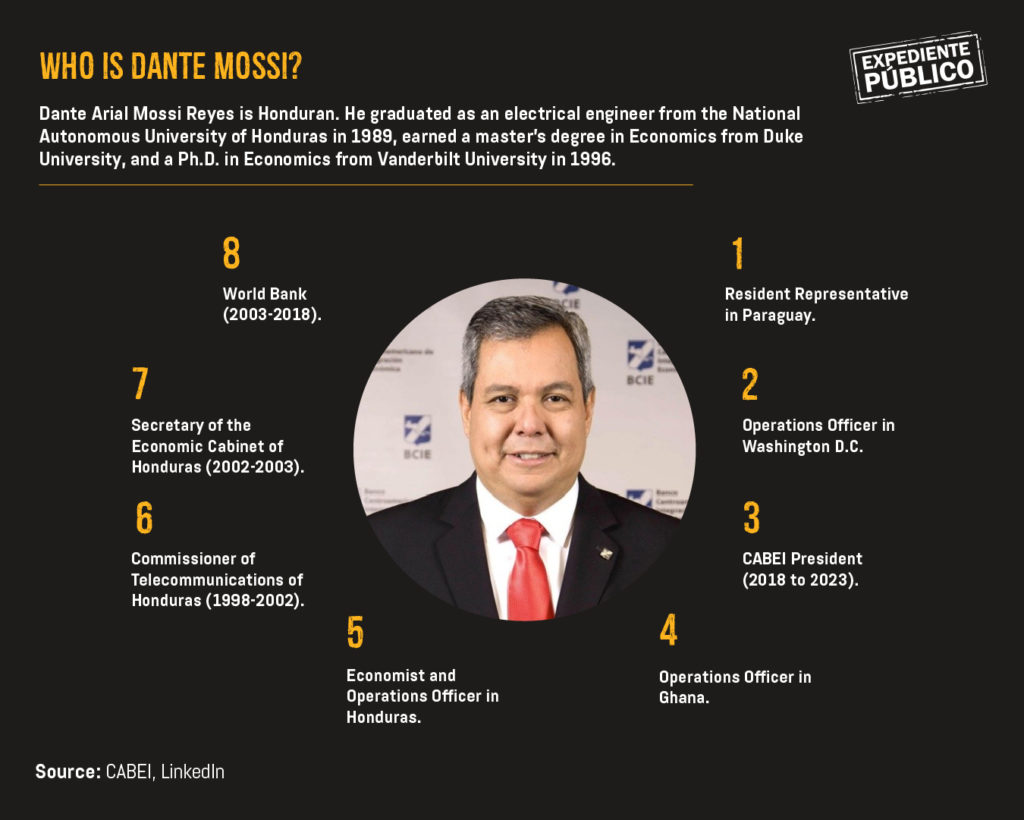
Crimes against humanity
The former CABEI president reiterates that “many of the accusations made (against Ortega) did not occur during the period that I served as president” of CABEI.
Although Mossi effectively began his function on December 1, 2018, he accepted that CABEI supported the Nicaraguan Police in its management in improving police stations and vehicles.
However, the documentation shared by Expediente Público with the Washington Post reveals that, between 2018 and 2020, CABEI funds were used to strengthen the repressive apparatus.
On this subject, Mossi maintains that the tenders for the funds for the Police were void, twice, which is why he decided to talk to the Nicaraguan regime to renounce this CABEI loan.
As described in a bank bulletin, the loan was for US$16,334,985 and was intended to finance the so-called “Rural Police Coverage Expansion Project.”
Since 2018, the regional bank’’ loans to Nicaragua increased from US$365 million to US$805 million.
In this context, experts from the United Nations and the Inter-American Commission on Human Rights (IACHR) maintain that, since April 2018, on the orders of Ortega and his wife Rosario Murillo, the police and paramilitaries massacred more than 300 people.
Reports based on testimonies and other documentary evidence also attribute crimes against humanity such as rape, torture, exile and disappearances to the regime.
You may be interested in: CABEI is looking for Dante Mossi’s replacement
“My conscience is clear”
Mossi told Expediente Público that he is at peace because he did not contribute to the death of Nicaraguans during the 2018 protests.
Although he accepts that criticism affects his professional career, he does not look down on his role at CABEI.
“I put myself in the shoes of a possible employer in the future, who says: this one better not, because he has a bad image with what he did there. But at least, the most important thing, which is my conscience, is calm,” he reiterated.
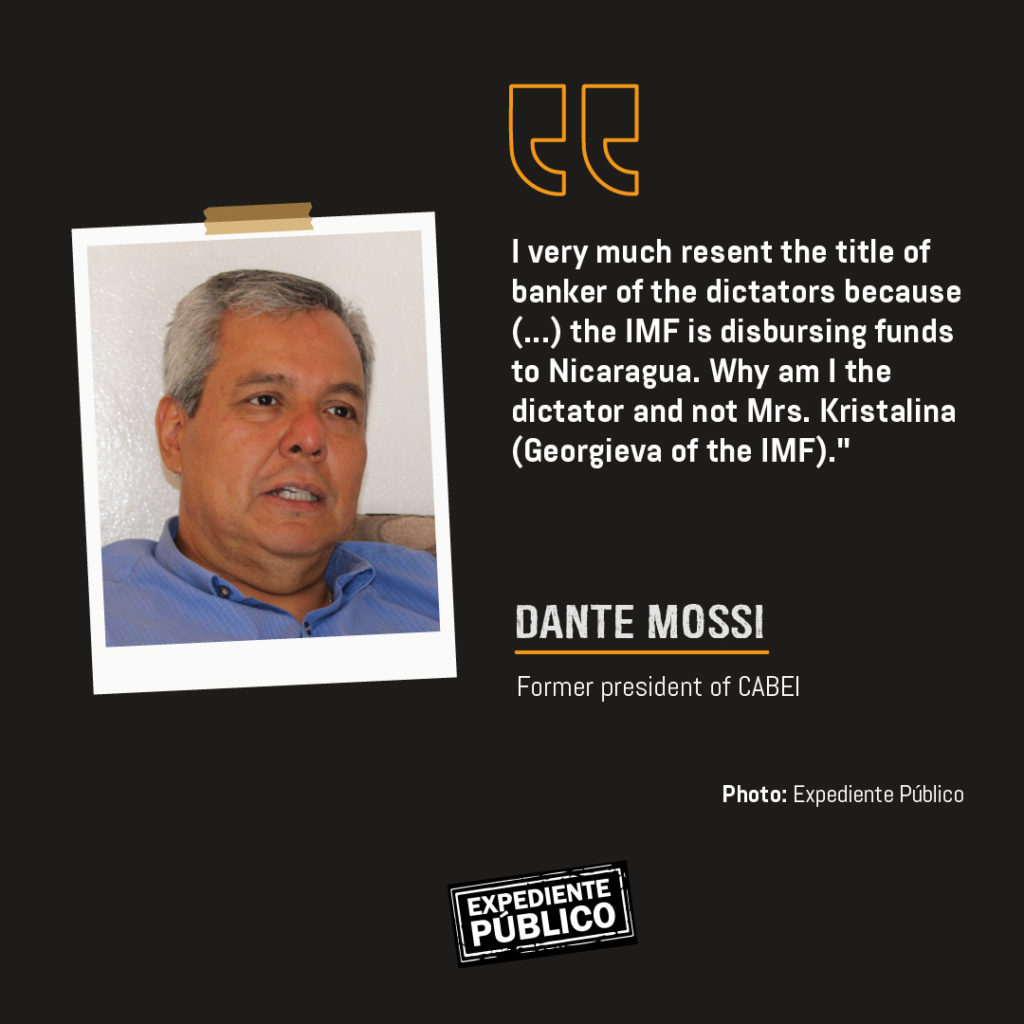
Sanctions
On July 25, 2022, Mossi said in an interview for Nicaragua’s Channel 12 that “there is a sanctions regime, which is unfair.”
Expediente Público asked him if he thinks the same way about the sanctions on the Ortega regime now that he is out of the bank.
“I cannot be a judge and decide if they are fair or unjust (the sanctions). What I know is that I have to work with those sanctions and see how I don’t get the bank into trouble when it comes to working with a country,” he said.
Funds for authoritarianism
The former president of CABEI is bothered by the title of “dictators’ banker,” which he received for disbursing funds to Nicaragua or to the presidency of Nayib Bukele in El Salvador.
“Forgive me, but the Monetary Fund is disbursing funds to Nicaragua; why am I the dictator and not Mrs. Kristalina Gueorguieva (director of the IMF), I tell you,” he said.
Expediente Público questioned that Nicaragua with Ortega and Honduras with Juan Orlando Hernández (2014-2022), currently imprisoned for drug trafficking in the United States, were the countries that received the most funds during his presidency of CABEI.
“During my administration, some 15 billion dollars were addressed to all of Central America (…), in the case of these five years the country that received the most financial support was Costa Rica, followed by El Salvador, Nicaragua and then Honduras,” he said.
According to data provided in an interview by CABEI’s current president, Gisela Sánchez, at the end of 2023, Mossi concentrated CABEI’s loan portfolio in El Salvador with 25%, followed by Nicaragua with 22%, Honduras (17%), Costa Rica (10%) and Guatemala (5%).
In context: Dante Mossi will inherit bureaucratic burden and excessive expenses at CABEI
Pressures
When asked what kind of internal or external pressures he had in his tenure as CABEI president, Mossi acknowledged that “the bank always had pressures.”
For example, “when there were certain operations in Nicaragua there were diplomatic notes from some countries to certain directors,” he revealed.
According to Mossi, embassy officials called him telling him that “we don’t look favorably on this.”
Although he did not mention names, he revealed that people in the U.S. State Department were the ones who communicated the concern to him.
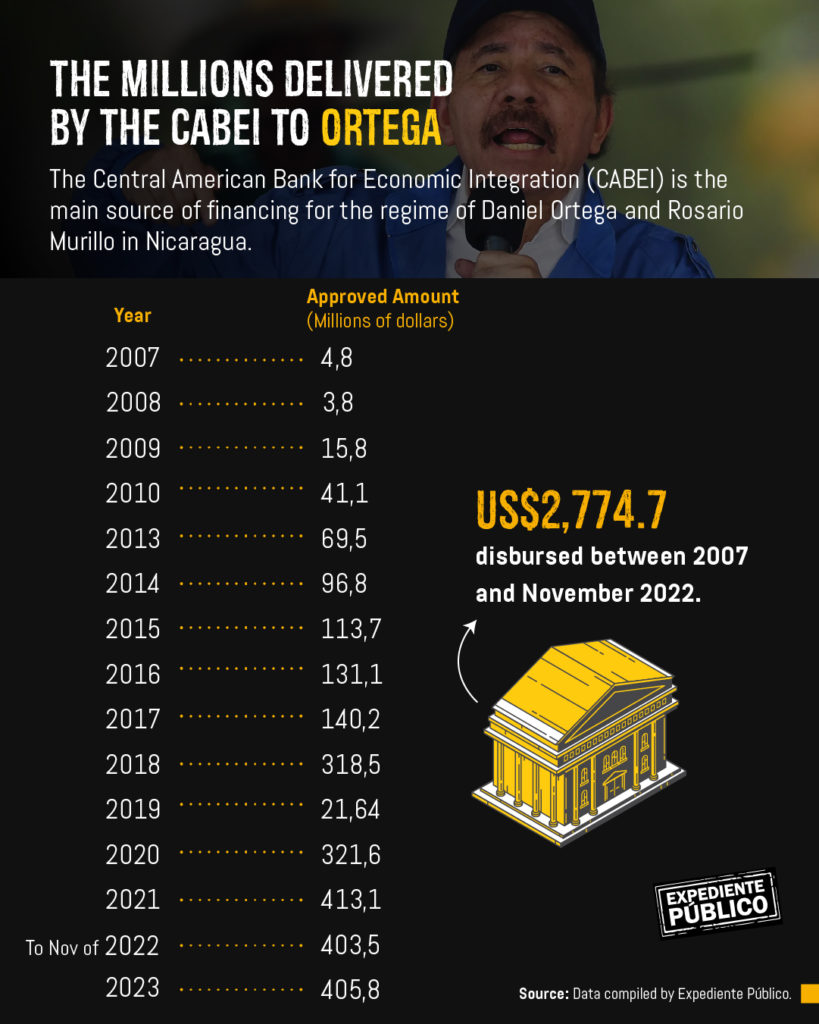
Also: Dante Mossi endangers CABEI’s reputation by financing the Ortega regime
Criticism of the new president
Some of CABEI Director Gisela Sánchez’s actions were to diversify the loan portfolio for all of Central America, limiting loans to Nicaragua and El Salvador.
“They have already exceeded the limits of the credits they can receive, support to these countries must be stopped to achieve a more diversified and balanced portfolio,” Sánchez clarified, in March 2024, in the media outlet Redacción Regional.
“This lady (Gisela) said that she was not going to approve disbursements in El Salvador, Nicaragua, but the information says otherwise,” Mossi says.
His statement is based on receiving information from an alleged worker at CABEI who shared the mid-year disbursement report with him.
This report states that CABEI’s 2024 funds amount to US$1.2 billion and includes disbursements of US$43 million to El Salvador and US$203 million to Nicaragua. Data that Mossi published on his X account.
In addition, he criticized that CABEI was a setback in terms of accountability.
“It is not a criticism, but in relation to this year, the bank has not officially published its disbursement data,” he said.
Another action that displeased Mossi is that President Sánchez has decided to fire people close to him at CABEI.
Friction with CABEI
Mossi said that when he left CABEI, he was given a confidentiality agreement that he considers to be “a muzzle.”
“What it said was that I could not give an interview, write a book, have social networks, without the prior permission of the bank,” he revealed.
According to Mossi, only if he signed the agreement would he be entitled to his benefits that corresponded to five years of work with an annual salary of 220 thousand dollars per year.
Mossi told Expediente Público that he sued CABEI before the Central American Court of Justice for a deduction of 6 thousand dollars from his benefits for an internal audit.
“They withheld 6 thousand dollars from a letter made by the lawyer (Guillermo) Pérez Cadalso, which I asked him for an opinion, on the gag that they had implemented in May of last year,” he said.
Reelection
Mossi planned to be re-elected for another five years as CABEI president, however, he did not have the support of the member countries to be able to do so.
According to Mossi’s account, this was because the governor of Guatemala, Jonathan Menkos Zeissig, began a campaign to oust him, because “he aspired to be president.”
“Costa Rica (Helio Fallas) was the other country that had told me, President count on my support, but in later weeks he told me, Dante, things have changed (…) Honduras had changed its relationship from Taiwan to China, so I was furious,” he said.
In view of these events, Mossi explained that he met with the governors of the founding countries and told them that he would not participate in the process to become president of CABEI.
“I do not want to participate, I do not want to be part of a bank that is closing, because you know that my name is the one that is at stake and that of the bank, but the bank is going to continue, but my name has to be clean,” Dante said that he communicated to the governors.
It should be noted that Mossi’s administration was involved in questions for granting loans to the Ortega dictatorship in Nicaragua, closeness to former Honduran president accused of drug trafficking Juan Orlando Hernández (2014 –2022), and disbursements to President Nayib Bukele in El Salvador.
What does he currently do?
Despite everything he said about his departure from CABEI, “now that I am out, I would like to become in my role as a Honduran citizen, from Central America, a social auditor of the bank (CABEI).”
Dante Mossi currently teaches in the master’s degree in Economics and Finance department at the Catholic University of Honduras.
He also has a business selling electric cars that he has on the CA-5 highway that connects the port of San Lorenzo (on the Pacific coast), Tegucigalpa, Comayagua, San Pedro Sula and Puerto Cortés (on the Atlantic coast).
“If that doesn’t work, then I will make a taxi cooperative with electric cars so as not to lose my investment and show Honduras that it is possible to do a different form of business, friendly to the environment and without spending a lot of money,” says the banker.
Dante knew about Belinda Martínez’s business
Expediente Público, in its investigation “Government of Honduras paid USD127 thousand to the business of its director at CABEI,” exposed how Belinda Martínez earned 3.1 million lempiras in contracts in the State through her property, the Hotel La Suites Aurora, in 2023 and 2024.
When presenting the case, Mossi acknowledged that since 2022, when Belinda Martínez was elected as CABEI’s director of Honduras, he knew that this would generate a conflict of interest for the bank.
In context: The business of the hotel of the director of Honduras at CABEI
“I tell her (Belinda Martínez), to avoid a conflict of interest (…) directors who are businessmen are asked to delegate their authority, so that they refrain from creating that conflict of interest,” he clarified.
The journalists of Expediente Público stated that Belinda Martínez had made this decision until April 2024, however, Mossi reiterated that it is nothing new for CABEI members to have their businesses.

